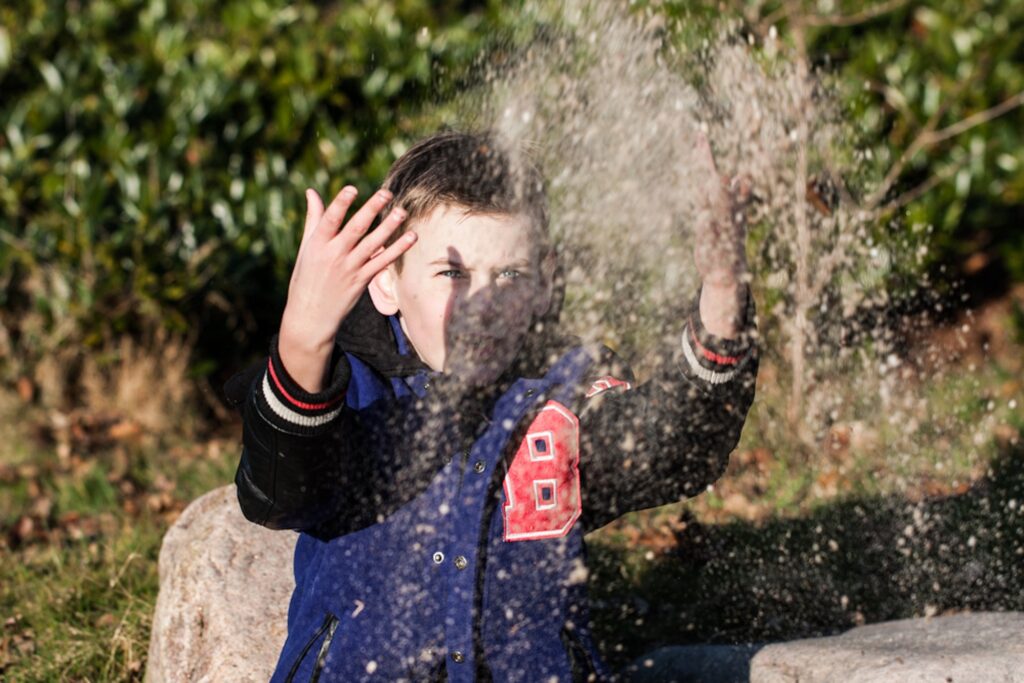A social learning strategy that is frequently employed in my social groups has to do with assisting kids in practicing the skill of connecting actions to outcomes.
Kids who struggle with impulsiveness or have executive function weaknesses do not do this very well, if at all. These are kids whose brains live only in the moment and do not have the mechanisms available to them that will prevent them from taking action.
Instead of a ready, AIM, fire mode, they operate on ready, FIRE, and there is no aim. And when you don’t have those moments of *aim* to consider why you might want to roll back the action, you don’t consider it. Until it’s too late, and the social damage has been done, or you find yourself in trouble.
In order to help these in-the-moment brains, we need to catch them in their *ready* position. For example, yesterday, one of the kids was holding a clump of dirt, looking at me, and raising his hand in what I could easily predict was going to be a throwing action at me. In another instance, I could see a child running towards another child who wasn’t looking with both hands out, ready to (prediction here) push them. If we as adults pay attention and observe, it’s fairly easy to catch kids in their ready position and predict the action.
If we can catch the action, we can work with them on predicting the outcome. How I get them to do this is very simple. I remind them to run it through all the way to the end and ask them questions such as, “What do you think will happen if you _____? Is that what you want to happen?” If you can help a child put on the brakes this way, they will almost always stop themselves and make a different choice.
Impulsive kids DO NOT enjoy getting into trouble or having people mad at them. These are abilities that they do not have and we have to step in. By having them stop and think through the outcome, their brain begins to practice the skills needed to be able to do this. If they are never coached to stop and think before they fire, their aim is going to be off. No amount of re-visiting it after the fact (i.e., a Think Sheet) is going to have an impact. They already know what they SHOULD have done, but didn’t. In-the-moment kids need to be supported in-that-moment.
Image Credit: pxhere.com









Leave a Reply